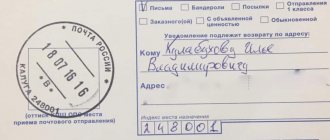Consideration of a case in court is a procedure clearly regulated by law, therefore almost all court hearings follow a similar scenario. However, if you are in court for the first time, much of what happens in the courtroom may be surprising or confusing. From our material you will learn how the trial proceeds and what stages the consideration of the case consists of.
At the same time, if you do not have a legal education and experience in participating in litigation, we recommend that you definitely seek help from a lawyer. Consideration of a case in court is a very responsible process. Therefore, any - even seemingly insignificant - mistake can lead to extremely negative consequences (especially in matters that concern property).
Do you want to figure it out, but don’t have time to read the article? Lawyers will help
Entrust the task to professionals. Lawyers will complete the order at the cost you specify
280 lawyers on RTIGER.com can help with this issue
Solve the issue >
Stages of the preliminary hearing
The course of the court hearing is controlled by the following regulatory legal acts:
- Civil Procedure Code of the Russian Federation.
- Arbitration Procedural Code of the Russian Federation.
- Criminal Procedure Code of the Russian Federation.
According to the Code of Civil Procedure of the Russian Federation, a court hearing involves the following stages:
- Opening of the preliminary meeting. At this stage, the judge must announce the composition of the court and name the secretary.
- The judge names the case on which the hearing is taking place.
- The identities of those who came to the meeting are being established.
- The judge explains to the participants their rights. If necessary, the secretary or judge may be challenged at this stage. To do this, one of the participants in the process must submit a corresponding petition.
- If one of the parties has filed a motion, the court must consider it immediately. In some cases, this requires removal to a deliberation room and the announcement of a court ruling.
- The preliminary meeting begins. This stage is necessary to clarify some circumstances of the case. The parties may also provide explanations or provide additional evidence. The judge finds out whether the parties have the opportunity to reconcile. Finally, the court must ask the parties whether all points have been clarified and whether the preliminary hearing can be completed.
- A date is set for consideration of the case on the merits. After this, those present can familiarize themselves with the minutes of the meeting and add their comments to it. The court may also decide to postpone the preliminary hearing if there are compelling reasons.
The stages of the preliminary meeting on the Arbitration Procedure Code of the Russian Federation are similar to those described above. However, in this case, the judge may hold a hearing immediately after the preliminary stage. This is possible with the consent of all participants.
If the preliminary hearing takes place within the framework of the Criminal Procedure Code of the Russian Federation, then we are talking about a closed meeting, which involves the following stages:
- The hearing is opened by the judge, who announces the composition of the court and names the case on which the hearing is taking place. He is also obliged to introduce the defense lawyer and the prosecutor participating in the process.
- The identities of the participants in the preliminary meeting are established. In addition to the above-mentioned persons, only the victim and the accused are present at the closed hearing.
- The judge explains to the participants in the process their rights.
- The parties may file motions. The court must resolve them.
- The judge retires to the probate room and makes a final decision.
The preliminary hearing may have the following results:
- an actual hearing of the case is scheduled;
- the proceedings are suspended;
- office work is terminated;
- the claim is left without consideration;
- the case is transferred to another court.
Is it possible for the parties to reach a settlement in a criminal case?
A settlement agreement is an unusual and quite flexible instrument for effectively conducting regulation between parties of various kinds. A settlement agreement is a conciliatory action. At the same time, a number of events will be carried out, which will contribute to the mandatory reconciliation of individuals and the mandatory observance of their mutual interests.
A settlement agreement cannot carry obligations of pre-trial or out-of-court regulation. This will serve as the only basis for terminating proceedings in the case under consideration, which is subject to mandatory approval by the authorities. This point is regulated by procedural standards.
This stage cannot be concluded even before the filing of a statement of claim by one party. Having resolved the dispute by amicable agreement, the parties to the trial can calmly disperse. Any party may initiate the conclusion of the proceedings.
The final moment of the trial may complete the main stages of the case. The work of the bailiff, prosecutor and defense attorneys ends the moment the judge leaves the courtroom. The sentence immediately comes into effect, the guilty, if the court sentenced him to imprisonment, he is sent straight to the prison corresponding to his punishment.
Stages of the main hearing in the court of first instance
According to the Code of Civil Procedure of the Russian Federation, the main court hearing includes the following stages:
- The meeting is opened by the judge, who announces the composition of the court and checks the attendance of the participants. Next, he is obliged to explain to those present their rights.
- Participants have the right to submit petitions. The court is obliged to consider them and make a decision.
- Consideration of the case on its merits. Each side can speak and argue its position. At the same time, opponents have the right to ask questions to each other. The court can also question those present.
- The judge examines the evidence in the case. He must familiarize himself with the case materials and interrogate witnesses. If necessary, specialists are involved in the hearing.
- Participants in the process may make additions. If the parties have nothing to add, the court proceeds to the debate.
- The stage of judicial debate allows the parties to focus the judge’s attention on certain points. They have the right to add to what was said earlier.
- After the debate, each participant can make a statement. The court then moves to the conference room.
- Having made a decision, the judge announces the final verdict.
The court hearing under the Arbitration Procedure Code of the Russian Federation follows a similar algorithm. At the same time, cases are considered faster, since the court most often does not explain to the parties their rights and does not examine the case materials. The process is limited to hearing the parties' speeches, debates and remarks. Next, the court retires to the deliberation room and makes a final decision. Interrogation of witnesses and specialists in meetings on the Arbitration Procedure Code of the Russian Federation rarely takes place.
Have a question for a lawyer? Ask now, call and get a free consultation from leading lawyers in your city. We will answer your questions quickly and try to help with your specific case.
Telephone in Moscow and the Moscow region: +7
Phone in St. Petersburg and Leningrad region: +7
Free hotline throughout Russia: 8 (800) 301-39-20
A judicial investigation under the Code of Criminal Procedure of the Russian Federation can last for several days if the process proceeds according to the general procedure. A quick review of the case is also possible (with a special procedure). In this case, the decision is made without examining the evidence. For example, if the offender admitted his guilt.
The main meeting on the Code of Criminal Procedure of the Russian Federation involves the following stages:
- The judge opens the hearing, lists those present, and names the case.
- The identities of the victim and the defendant are being established.
- The judge must explain to the participants the right to request a recusal.
- The procedure for examining the evidence base is determined.
- The prosecutor announces the charges.
- The victim, witnesses and the defendant are interrogated.
- The court examines material evidence and case materials.
- After studying the evidence base, a decision is made to complete the judicial investigation. If the participants have no objections, the legal debate begins.
- After the debate, the parties make their remarks.
- The defendant gets the opportunity to say the last word before the final decision is made.
- The presiding officer goes into the room to make a decision and pronounce a sentence.
Court hearings in higher courts
If one of the parties is dissatisfied with the court's decision, it can appeal it. The case is re-examined in a higher court. The procedure is carried out in an accelerated manner. First, the floor is given to the person who initiated the review of the case. The defendant may object to the complaint. The parties also have the right to make additions, after which the court makes a decision.
When considering cases in a higher court, participants are often limited in time. That is, the process turns out to be somewhat truncated. The peculiarity of such a hearing is that it considers not the entire case, but a specific complaint. There is a judge rapporteur whose duties include a brief summary of the essence of the case. Then the complaint and objections to it are heard.
How long does the court hearing last?
It all depends on the circumstances of the case and the article that can be considered in civil, administrative or criminal proceedings. One meeting can last for 5 minutes, a couple of hours or several days. Moreover, the court has the right to establish breaks and postpone the hearing in the presence of certain circumstances. For example, a standard divorce process lasts about 10 minutes. However, here too there may be special cases in which the process is delayed.
An excessively long consideration of the case is not recommended, because the fatigue of the participants can lead to a biased verdict. For example, if the process is delayed, then some circumstances may simply not be considered. Therefore, the judge must break up such a hearing over several days.
Some cases have been pending for years. Moreover, the parties may deliberately delay the process. It is also possible to discover new evidence that radically changes the course of the case. The federal legislation of the Russian Federation does not limit court hearings in time, because the task of the court is to make an objective decision. And if this requires more time, the hearing may be extended. For example, often the hearing is postponed due to the need to double-check evidence or bring new experts to the trial.
Breaks are appointed by the judge at his personal discretion or at the request of the participants in the trial. The duration of the break is set individually. This could be 20 minutes or several hours.
Procedure for considering comments on the protocol
Comments on the protocol are reviewed by the judge who signed it - the presiding judge at the court session, who, if he agrees with the comments, certifies their correctness, and if he disagrees with them, issues a reasoned ruling on their complete or partial rejection. The comments are included in the case in any case.
Comments on the protocol must be considered within five days from the date of their submission.
Based on the results of consideration of the comments, the judge is empowered to:
- certify the correctness of the comments in full;
- certify that some of the comments are correct;
- make a reasoned decision regarding their complete rejection;
- make a reasoned determination regarding their partial rejection.
Tags material evidence civil case evidence legislation comments on the protocol plaintiff settlement agreement circumstances of the case explanations of the parties defendant debate of the parties recognition of the claim principles protocol of the court session court decision secretary of the court session parties court session trial
How many meetings take place before a decision is made?
There is also no clear answer to this question. It all depends on the following nuances:
- complexity of the case;
- appearances of the parties;
- applications to postpone hearings;
- appointment of examinations;
- the emergence of new circumstances, etc.
To resolve some situations, one hearing is enough. Other cases may involve dozens of meetings and last for years. This especially applies to criminal cases. In addition, the defendant has the right to file a counterclaim, which also does not contribute to a quick verdict.
On average, the trial lasts about three months. If an examination is necessary, the proceedings may take six months or more.
General information
A criminal trial may take place with the participation of a jury. The prosecutor acts as a mandatory participant in the consideration. The arbitration trial may take place with the participation of a panel or one official. People's representatives are invited to consider cases collegially. Civil litigation is usually conducted by one official. In almost all cases, except those provided for by law, the secretary is involved in the consideration. He takes the minutes. The presiding judge of the court plays a leading role in the meeting. He guides the course of the consideration, ensures an objective examination of the circumstances, excluding everything that is not related to the essence of the dispute.










